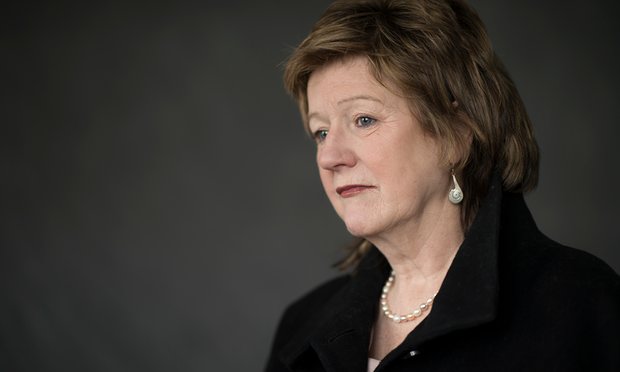Legal Fees Are a Barrier to Justice for Sex Abuse Victims, Inquiry Hears
By Owen Bowcott
Victims of abuse are finding it increasingly difficult to bring claims for compensation to court because of cuts to legal aid and high legal fees, the inquiry into child sexual abuse has heard. In its first public seminar, the independent inquiry chaired by Prof Alexis Jay was also told that proposals to introduce a fixed costs regime could add a further barrier to justice. Luke Daniels, a solicitor with the firm Irwin Mitchell, said it now costs ?10,000 to issue a claim. Some cases were later dropped because the costs involved were deemed by the Legal Aid Agency to be disproportionate to any likely future award. Peter Garsden, a solicitor with Simpson Millar and president of the Association of Child Abuse Lawyers, said legal aid had been cut back heavily. “People who go through abuse cases are generally unable to work,” he said, “and from the lower income thresholds. “There’s a poverty gap where you can’t afford civil litigation but don’t qualify for public funding. The equity in your house is taken into account [in testing entitlement to legal aid]. Garsden added: “Persuading the Legal Aid Agency that your case has merit is a huge amount of work. The special cases unit in Brighton require you to prove everything and take nothing on trust. Some [lawyers] don’t deal with legal aid because it requires so much effort.” Jonathan Bridge, a solicitor with the law firm Farleys in Manchester, said: “There are an increasingly large number of experts who will not work at legal aid rates. They will not prepare reports at legal aid rates. That’s particularly a problem with adult and child psychiatrists.” Dave Enright, of the solicitors firm Howe and Co in London, said there was consequently “a very small pool of practitioners”. He said: “It’s badly paid. The work is so complex and that’s part of the barrier.” Asked by counsel to the inquiry Peter Skelton QC whether that prevented access to justice, Enright replied: “Absolutely. Because there will be huge [advice] deserts around the country.” Large parts of the country did not have local lawyers who are experts on abuse. “There’s a chilling effect. The people who come to us are the tip of the iceberg. The overwhelming majority never come forward. They suffer from the chilling effect of these changes in legal funding by which they have to make financial judgments about whether or not to take cases forward.” Most claims for abuse are settled for relatively modest sums, according to evidence from solicitors who specialise in sexual abuse cases. Richard Scorer, of the law firm Slater and Gordon, said: “Average awards are around ?15,000, typically in the ?10,000 to ?40,000 range. “Big figure awards are very unusual. There’s a difficulty in proving loss of earnings. It’s usually a modest award for disadvantage in the labour market. The highest awards have been ?600,000 to ?700,000.” The oldest case of abuse Scorer said he had reached a settlement on dated back to 1955. Because of rules on limitations, he added, few were likely to succeed much before that date. Garsden said 80% of abuse involves someone already known to the victim. “Those are non-institutional cases,” he said. “They are deserving but can you pursue them?” Cases against institutions mostly date from the 1960s to the mid-1980s before foster care became more common. “What all survivors of abuse want is their day in court and to be believed and to be listened to,” Garsden said. A further threat to litigation, the solicitors explained, is a new regime of fixed costs for all claims. Lord Justice Jackson has been commissioned to undertake a review of fixed recoverable costs, to be completed by July 2017. “Fixed cost regimes would render most of these cases unviable,” Garsden added. Experts from the insurance world also gave evidence. They denied that new policies were being produced that included exclusion clauses for claims involving sexual molestation. One insurer insisted that his company would never suggest there had ever been consent to sexual offences by those aged under 16. The seminar was told, however, that the Criminal Injuries Compensation Authority had in one unusual case considered a 14-year-old to have consented. The seminar continues on Wednesday.
|
.
Any original material on these pages is copyright © BishopAccountability.org 2004. Reproduce freely with attribution.
